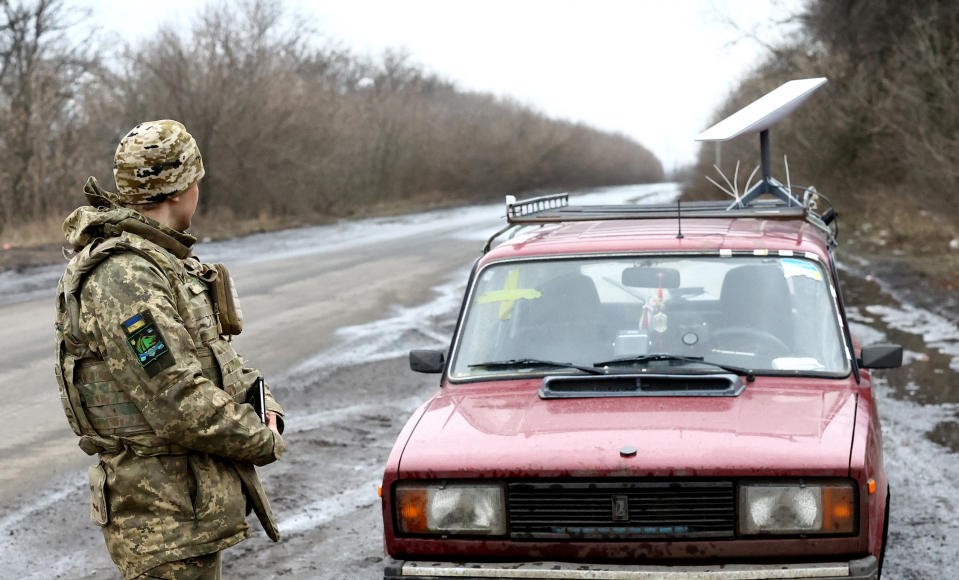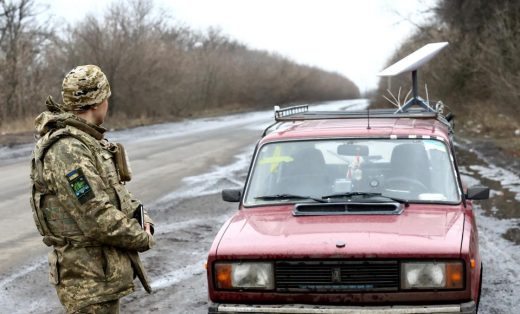Ukrainian official claims Elon Musk cost lives by refusing Starlink access during a drone operation
Elon Musk biography will be edited to correct claim about Starlink access in Ukraine-Russia conflict
“He now says that the policy had been implemented earlier, but the Ukrainians did not know it.”

Publisher Simon & Schuster will update future editions of Walter Isaacson’s Elon Musk biography to remove the claim that Musk turned off Starlink coverage to directly prevent a Ukranian drone attack.
Excerpts from Walter Isaacson’s Elon Musk biography were published by CNN last week, bringing to light new details about the billionaire’s decision to provide Ukraine with Starlink access amid the country’s war with Russia. According to the apparently incorrect excerpt CNN originally reported on, Musk told SpaceX workers to shut down Starlink access close to the Crimea coast to prevent a Ukrainian attack on Russia’s naval fleet.
The explosive claim was contested from the start. Musk, who has reportedly been in contact with Russian officials including President Vladimir Putin, is said to have been worried that the attack would lead to Russia retaliating with nuclear weapons. Ukrainian leaders seemingly begged Musk to reactivate Starlink access but drones that were approaching Russian warships “lost connectivity and washed ashore harmlessly,” CNN cites Isaacson as stating.
Musk’s alleged actions have had significant consequences for Ukraine, according to Mykhailo Podolyak, an advisor to President Volodymyr Zelensky. Podolyak wrote on X (the platform formerly known as Twitter that Musk owns) that in preventing drones from attacking the Russian ships, Musk enabled them to fire missiles at Ukrainian cities. “As a result, civilians, children are being killed,” Podolyak claimed. “This is the price of a cocktail of ignorance and big ego.”
Sometimes a mistake is much more than just a mistake. By not allowing Ukrainian drones to destroy part of the Russian military (!) fleet via #Starlink interference, @elonmusk allowed this fleet to fire Kalibr missiles at Ukrainian cities. As a result, civilians, children are…
— ??????? ??????? (@Podolyak_M) September 7, 2023
According to Musk, however, Starlink was not active in those areas and so SpaceX had nothing to disable. “There was an emergency request from government authorities to activate Starlink all the way to Sevastopol. The obvious intent being to sink most of the Russian fleet at anchor,” he wrote on X. “If I had agreed to their request, then SpaceX would be explicitly complicit in a major act of war and conflict escalation.”
Isaacson has since spoken publicly on X, saying that his initial statements were made because he thought the policy to not allow Starlink to be used for an attack was decided the night of the event. Musk now says, according to Isaacson, that “the policy had been implemented earlier, but the Ukrainians did not know it.”
Hi, Tim. Based on my conversations with Musk, I mistakenly thought the policy to not allow Starlink to be used for an attack on Crimea had been first decided on the night of the Ukrainian attempted sneak attack that night. He now says that the policy had been implemented…
— Walter Isaacson (@WalterIsaacson) September 9, 2023
Musk responded to Isaacson on X, thanking the author for his clarification, and adding that neither he nor anyone at SpaceX has promised Starlink coverage over Crimea. He added that the company’s “terms of service clearly prohibit Starlink for offensive military action.” According to Musk, “the onus is meaningfully different if I refused to act upon a request from Ukraine vs. made a deliberate change to Starlink to thwart Ukraine.”
Regardless of whether Starlink was secretly switched off or just secretly not switched on, Musk’s decision to refuse access undoubtedly affected the Ukraine-Russia conflict in one way or another, and not for the first time. A report late last year indicated that around 1,300 Starlink terminals Ukraine was using temporarily went offline due to a dispute over payments for the internet service.
Update September 12 9:10AM ET: This story has been updated since publish to include Simon & Schuster’s decision to edit future copies of Isaacson’s biography, Isaacson’s statement on X and Musk’s response to that statement.
(23)



